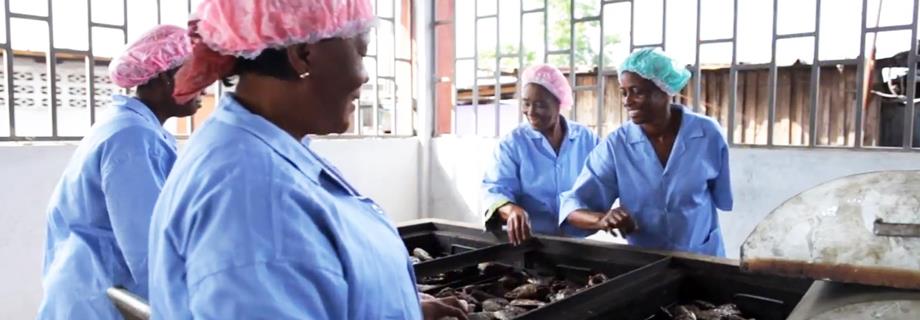Transforming women’s lives in Côte d’Ivoire through adapted fish smoking technology
Women from other districts in Côte d’Ivoire, and even from neighbouring countries, have since come to learn about the group dynamics and operation of the techniques so they can use them too.

Smoked fish is a vital source of food security, nutrition and income for many African coastal communities. In Côte d’Ivoire, the foodstuff is hugely popular and widely sold in markets.
However, the traditional smoking method requires large amounts of wood, letting off choking clouds of smoke. Research showed that over 60 percent of the women who smoked fish suffered symptoms related to their work, including respiratory and eye problems. Their children also suffered health consequences, as they were often present as the women worked, either bundled up in wraps on their backs or playing by their sides. “If you have kids, and you don’t do this, how will you feed them or send them to school?” said Tia Florence, a fish smoker in Guessabo. “This is hell.”
Realizing the women often have no other options for better working conditions, FAO – as part of a wider project to improve food security and empower women across Africa – teamed up with the Government in 2014 to create a better and safer fish smoking process.
Working in four pilot communities, the project laid the foundation for sustainability of good practices with women’s cooperatives adopting user-friendly and clean technology, known as FTT-Thiaroye ovens. For each kilo of smoked fish produced, the covered ovens use only 0.8 kg of wood, instead of 5 kg with the traditional smoking method, allowing the women to cook better quality fish in less time, with a much-reduced health risk.
“Here, once you put your fish in, you can rest until the fish is cooked and then you can go sell it in the market,” said Blé Odile, who started smoking fish at the pilot site in Guessabo.
